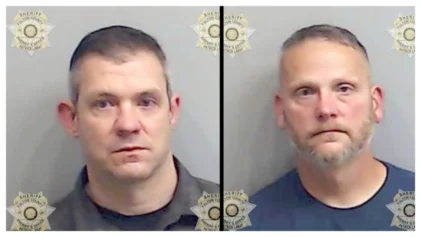The city of Boston has agreed to pay Al Copeland $1.3 million and has since offered the man an apology after police falsely accused him of being drunk and subsequently arresting him. Unbeknownst to officers and to himself, the 62-year-old-man was actually suffering from a stroke.
Copeland had begun feeling nauseous and unwell while driving and pulled over lest he have an accident. “I was afraid,” the now-64-year-old man told WBUR. “I say, well, at least if anything happens to me, somebody will find me.”

The incident occurred two years ago in April 2019 when police officers found Copeland slumped in his car and barely conscious outside of the Berklee College of Music, the outlet reported.
In records obtained by the station, law enforcement claimed they smelled alcohol on Copeland, although the man said he hadn’t had a drink in over two decades. A number of errors were reportedly made in the events that followed, including the fact officers arrested Copeland instead of calling for medical assistance.
Once at the station, Copeland struggled to keep his balance — ultimately falling and injuring his head on a cell wall before throwing up. Documents say cops allegedly left him in the cell for five hours to “sleep it off” before calling an ambulance for him when he vomited.
He was later transferred to Tufts Medical Center. Medical staff there accepted the cops’ assumption that Copeland was drunk and left him in the emergency room for seven hours until his wife, Valerie, tracked him down, whereupon doctors finally determined that Copeland actually had suffered a stroke.
The long delay between the onset of Copeland’s symptoms and when he finally began receiving treatment for his stroke might have made the difference between permanent disability and a full recovery.
For ischemic strokes, the most common kind, the Centers for Disease Control and Prevention describes the narrow window of time patients have to break up the blockage. “If you get to the hospital within 3 hours of the first symptoms of an ischemic stroke, you may get a type of medicine called a thrombolytic (a “clot-busting” drug) to break up blood clots,” the agency’s website says.
In the aftermath of his delays, Copeland spent weeks in the hospital. He no longer could do certain routine tasks and ultimately had to quit his job with the Massachusetts Bay Transit Authority. His wife told reporters she believes the arrest was racially motivated.
“Why they didn’t assume he was sick?” Valerie told WBUR. “I can only and strongly believe it’s because he’s a Black male. To see how uncaring they were. It is unfortunately — it should be shocking, but it’s not.”
Copleland says two years later and he’s still experiencing some difficulty. “My balance, my attitude, my appetite,” he told the station.
“Tasting food, and some cognitive things that are still happening, and some physical things as well.” He doesn’t remember much from that night and was made aware of the incident after waking up at the Spaulding Rehabilitation Hospital two months later.
The officers involved were disciplined not for how they handled Copeland, but instead for not promptly responding after he hit his head. The department nor the city of Boston have talked to the Copelands about the incident.
Meanwhile, they received an apology from Tufts, which also hired social workers to assist patients with trouble communicating and is actively working to address healthcare disparities.
“We are certainly very sorry that these events occurred,” they said in a statement to Newsweek. “Due to patient privacy laws, we are not permitted to comment on any individual patient’s clinical care.”
To read more stories like this, visit AtlantaBlackStar.com


